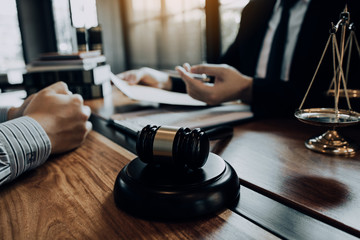Illegal Searches and Seizures
Eric Thole, attorney at law, states in a criminal case search and seizure has the biggest power to make or break a case. Solid evidence is the key for the prosecution to obtain a successful conviction. The police collect the strongest evidence against a suspect from the items obtained while searching their vehicle, property, or themselves. Eric Thole advises if you are a suspect in a criminal case, use your United States Constitution's Fourth Amendment right. It asks the police to abide by the strict restrictions as per the United States Constitution's Fourth Amendment if they want to conduct a search and seizure.
When
Can the Authorities Legally Search?
●
When the police have reasonable suspicion about
you doing something illegal, they may legally stop you and ask questions.
Eric Thole states such inquiries can also turn into a search of
your outer garments or a pat-down if the police have reason to believe you are
armed and dangerous.
●
When the police have reasonable cause to believe
you have committed a crime and places you under arrest.
In
such situations, the police can search for weapons/evidence on your body, in
your clothes, and in the area within your immediate control.
Handling
Police Encounters
Unless
the police arrest you, you have a right to end the encounter without consenting
to any search. Eric Thole, attorney atlaw, advises you to remain calm, polite, but assertive in such situations.
When a police officer questions you on the street while exercising your right
to end the encounter, politely ask if you're free to go. If they say you are
not under arrest, they do not have the authority to detain you any longer.
When
Can The Police Pull and Search Your Car?
Police
have the authority to pull over you if they have reasonable suspicion that you
have committed a crime. However, they cannot detain you at the roadside for
long. Eric Thole advises it is not
necessary to answer them when they pull you over. You are within your rights to
politely decline to answer and ask them if you are under arrest or not.
Circumstances
For Legally Searching Your Car
When they see incriminating objects in plain sight
●
A bag of
drugs on the dashboard
●
An open
container of alcohol
●
A weapon on
the seat
When you show signs of being drunk or on drugs
●
Irregular
speech
●
Lack of
coordination
●
Odd behavior
●
The
prominent scent of weed or alcohol
●
Your
bloodshot eyes
When you give incriminating statements
Giving
affirmative replay to a police officer's question about having a drink before
driving, is one such example of an incriminating statement. Eric Thole emphasizes if you give an
affirmative answer, it will raise the probable cause. Then, the police can ask
you to take a breath test.
When a K9 Unit marks your car
The
police can use K9 dogs to sniff your car any time you get pulled over, but it
must not unreasonably extend the length of the traffic stop.
Circumstances
When Police Can Legally Search and Seize
Eric Thole, attorney at law, wants you to remember all three circumstances
when the police can legally search and seize. They can conduct an extensive
search of your home or property, when
●
You give the
police consent
●
The police
have a court-issued warrant
●
The police
are responding to an emergency
Conclusion
Remember,
without your consent or without any probable cause police cannot conduct any
search or seizure. If you got arrested after a search and seizure, Eric Thole, attorney at law, advises
hiring a criminal defense lawyer immediately. Your defense lawyer then
questions the arresting officer and determines the probable cause and specifies
whether they overstepped their authority or not with illegal search and
seizure. If they did, Eric Thole can
file a motion to suppress the evidence obtained from the search or get your
charges dismissed altogether.




Comments
Post a Comment